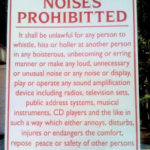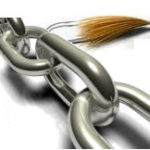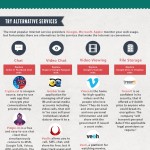 How much have you learned about Search Engine Optimization (SEO), so far? How many eBooks or reports, like the Google SEO Starter Guide have you actually read? How many free SEO Tutorials have you downloaded only to read it later? The list can go on.
How much have you learned about Search Engine Optimization (SEO), so far? How many eBooks or reports, like the Google SEO Starter Guide have you actually read? How many free SEO Tutorials have you downloaded only to read it later? The list can go on.
So what’s the point? My point is, we all probably have an arsenal of tips, tricks, white hat tactics, etc. under our hoods. So much knowledge and yet, absolutely useless if no action is done. We all want to rank relative well on search engines, but most of us sometimes do not realize that there are billions of websites out there, trying to do the same thing and achieving that dream of ranking highly on the SERPs (Search Engine Results Pages) is an objective that does not occur naturally (unless you came up with some sort of a magical keyword). If you take action on what you know, I can guarantee that you will stand out. Being ahead of millions could be not good enough, but it is definitely, one big step forward.
OK. I do know that reading all that stuff can be complicated sometimes and that you get confused as to what you should give priority to. You might even be working hard on optimizing something that does not do you any good. Even worst, you might be doing something that can actually hurt you.
That said, I have found a website, webconfs.com that lists 71 of the Best and Worst practices for designing a high traffic website. It is an excellent SEO Checklist, that has been broken down into main categories and rated from very important to not so important, and from bad, to very bad things you should avoid. To understand the list, a positive value of 1 or higher is totally recommended (work on it). Zero value, does not affect your traffic and -1 or lower negative values, are those that you should definitely not do.
To give you an example, I have condensed that list into a smaller one (those I believe are most important), just for you to have an idea.
| SEO | Observation | Importance |
| Keywords | ||
| Keywords in title tag | This is one of the most important places to have a keyword because what is written inside the title tag shows in search results as your page title. The title tag must be short (6 or 7 words at most) and the the keyword must be near the beginning. | 3 |
| Keyword density in document text | Another very important factor you need to check. 3-7 % for major keywords is best, 1-2 for minor. Keyword density of over 10% is suspicious and looks more like keyword stuffing, than a naturally written text. | 3 |
| Keywords in anchor text | Also very important, especially for the anchor text of inbound links, because if you have the keyword in the anchor text in a link from another site, this is regarded as getting a vote from this site not only about your site in general, but about the keyword in particular. | 3 |
| Keywords in headings H1 H2 | One more place where keywords count a lot. But beware that your page has actual text about the particular keyword. | 3 |
| Keyword dilution | When you are optimizing for an excessive amount of keywords, especially unrelated ones, this will affect the performance of all your keywords and even the major ones will be lost (diluted) in the text. | -2 |
| Keyword stuffing | Any artificially inflated keyword density (10% and over) is keyword stuffing and you risk getting banned from search engines. | -3 |
| Links – internal, inbound, outbound | ||
| Anchor text of inbound links | As discussed in the Keywords section, this is one of the most important factors for good rankings. It is best if you have a keyword in the anchor text but even if you don’t, it is still OK. | 3 |
| Origin of inbound links | Besides the anchor text, it is important if the site that links to you is a reputable one or not. Generally sites with greater Google PR are considered reputable. | 3 |
| Links from similar sites | Having links from similar sites is very, very useful. It indicates that the competition is voting for you and you are popular within your topical community. | 3 |
| Number of backlinks | Generally the more backlinks, the better. But the reputation of the sites that link to you is more important than their number. Also important is their anchor text, is there a keyword in it, how old are they, etc. | 3 |
| Inbound links from link farms and other suspicious sites | This does not affect you in any way, provided that the links are not reciprocal. The idea is that it is beyond your control to define what a link farm links to, so you don’t get penalized when such sites link to you because this is not your fault but in any case you’d better stay away from link farms and similar suspicious sites. | 0 |
| Outbound links to link farms and other suspicious sites | Unlike inbound links from link farms and other suspicious sites, outbound links to bad neighbors can drown you. You need periodically to check the status of the sites you link to because sometimes good sites become bad neighbors and vice versa. | -3 |
| Cross-linking | Cross-linking occurs when site A links to site B, site B links to site C and site C links back to site A. This is the simplest example but more complex schemes are possible. Cross-linking looks like disguised reciprocal link trading and is penalized. | -3 |
| Content | ||
| Unique content | Having more content (relevant content, which is different from the content on other sites both in wording and topics) is a real boost for your site’s rankings. | 3 |
| Frequency of content change | Frequent changes are favored. It is great when you constantly add new content but it is not so great when you only make small updates to existing content. | 3 |
| Keywords font size | When a keyword in the document text is in a larger font size in comparison to other on-page text, this makes it more noticeable, so therefore it is more important than the rest of the text. The same applies to headings h1, h2, etc.), which generally are in larger font size than the rest of the text. | 2 |
| Invisible text | This is a black hat SEO practice and when spiders discover that you have text specially for them but not for humans, don’t be surprised by the penalty. | -3 |
| Cloaking | Cloaking is another illegal technique, which partially involves content separation because spiders see one page (highly-optimized, of course), and everybody else is presented with another version of the same page. | -3 |
| Doorway pages | Creating pages that aim to trick spiders that your site is a highly-relevant one when it is not, is another way to get the kick from search engines. | -3 |
| Duplicate content | When you have the same content on several pages on the site, this will not make your site look larger because the duplicate content penalty kicks in. To a lesser degree duplicate content applies to pages that reside on other sites but obviously these cases are not always banned – i.e. article directories or mirror sites do exist and prosper. | -3 |
| Visual Extras | ||
| Flash | Spiders don’t index the content of Flash movies, so if you use Flash on your site, don’t forget to give it an alternative textual description. | -2 |
| A Flash home page | Fortunately this epidemic disease seems to have come to an end. Having a Flash home page (and sometimes whole sections of your site) and no HTML version, is a SEO suicide. | -3 |
| Domains, URLs, Etc | ||
| Site Accessibility | Another fundamental issue, which that is often neglected. If the site (or separate pages) is unaccessible because of broken links, 404 errors, password-protected areas and other similar reasons, then the site simply can’t be indexed. | 3 |
| Sitemap | It is great to have a complete and up-to-date sitemap, spiders love it, no matter if it is a plain old HTML sitemap or the special Google sitemap format. | 2 |
| Adsense will boost your ranking | Adsense is not related in any way to SEO ranking. Google will definitely not give you a ranking bonus because of hosting Adsense ads. Adsense might boost your income but this has nothing to do with your search rankings. | 0 |
| Adwords will boost your ranking | Similarly to Adsense, Adwords has nothing to do with your search rankings. Adwords will bring more traffic to your site but this will not affect your rankings in whatsoever way. | 0 |
| Bans in robots.txt | If indexing of a considerable portion of the site is banned, this is likely to affect the nonbanned part as well because spiders will come less frequently to a “noindex” site. | -2 |
| Redirects (301 and 302) | When not applied properly, redirects can hurt a lot – the target page might not open, or worse – a redirect can be regarded as a black hat technique, when the visitor is immediately taken to a different page. | -3 |
For the complete list of the 15 Minute SEO Checklist, please visit WebConfs website. Time to take action.








